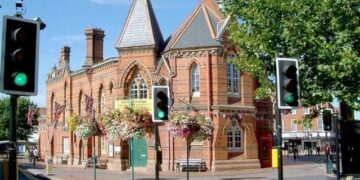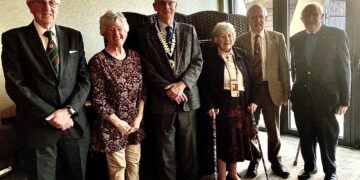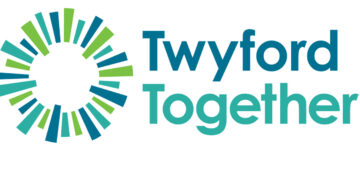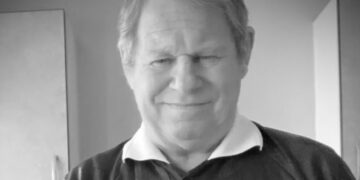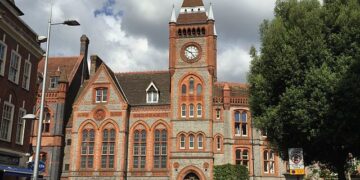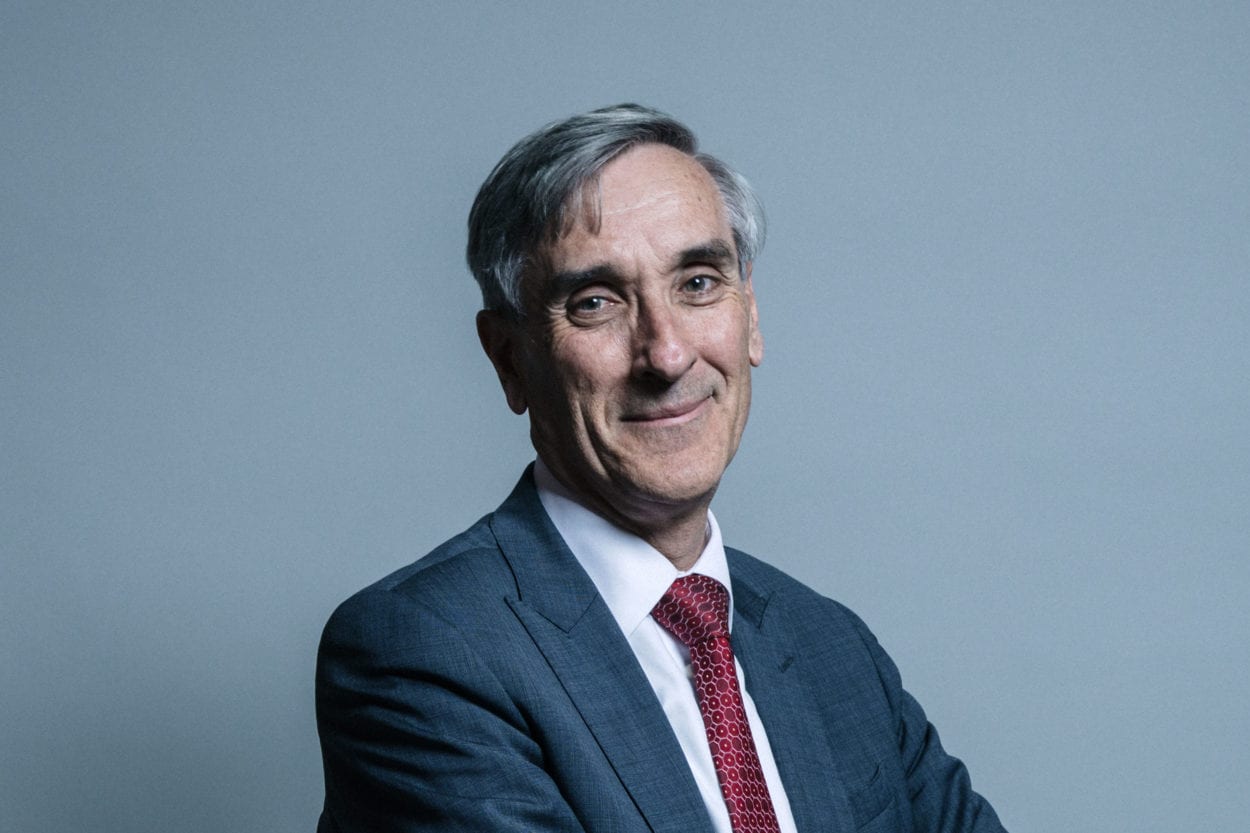TORIES IN TURMOIL … Could John Redwood be the one to save them?
Problems with Europe. A country struggling with the aftermath of one of the biggest crises for a generation. A Prime Minister known for his dither and delay, all coming after a stunning election triumph, the scale of which few expected.
A legendary Liverpool manager making headlines for his success, theatres are fearing for their futures, the FBI want a Duke to come to the US to testify in a case they’re investigating.
And a leadership challenge from John Redwood.
No, we’ve not let the heat go to our head.
These are all events from 25 years ago today, when John Redwood, then Welsh Secretary in John Major’s cabinet, launched a leadership bid. Had he won, the Wokingham MP would have become Prime Minister and changed the course of Britain’s history forever.
Back in 1995, John Major, who won the 1992 General Election against all odds, had had a turbulent few years. Integration with the European Union was causing no end of grief – Eurosceptic MPs in his party were against the implementation of the Maastricht treaty, the pound had crashed in the currency markets, leading to Black Wednesday – a day of turmoil that saw interest rates skyrocket. A recession that caused unemployment to soar.
And Major’s flagship policies – a cones hotline and a Back To Basics approach to decency and standards – had been ridiculed and was in tatters after a string of sexual shenanigans had been uncovered by the tabloid press.
Other problems facing Major at the time included whether Britain would join the Euro – then at the planning stage – and whether he would call a referendum on the issue of whether the UK should stay in the European Union.
There were also problems in the housing market, with some people falling into negative equity as a result of the recession.
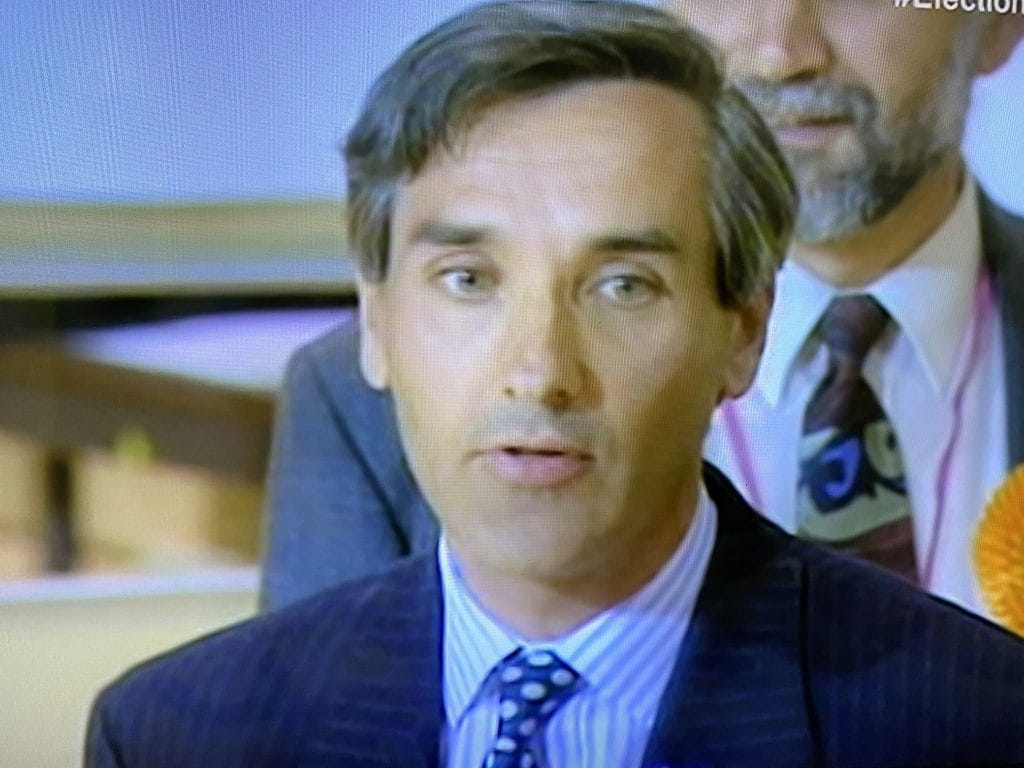
And he also had a problem within his own cabinet – he had told ITN’s then political editor Michael Brunson, when he thought the recording microphones had been switched off, that there was a ‘poison’ in the cabinet.
“Just think it through from my perspective. You are the Prime Minister, with a majority of 18, a party that is still harking back to a golden age that never was and is now invented. You have three right-wing members of the Cabinet who actually resign. What happens in the Parliamentary party?
“I could bring in other people. But where do you think most of this poison is coming from? From the dispossessed and the never possessed. You can think of ex-ministers who are going around causing all sorts of trouble. We don’t want another three bastards out there.”
In a bid to silence his critics, on Thursday, June 22, 1995, John Major resigned as leader of the Conservatives, but said he would be a candidate in a leadership election.
To win, Major needed to have both a majority and at least 15% more votes than his opponent.
He told MPs: “I’ve now been Prime Minister for nearly five years. In that time we’ve achieved a great deal, but for the last three years I’ve been opposed by a small minority in our party. During those three years there have been repeated threats of a leadership election. In each year, they have turned out to be phoney threats. Now the same thing again is happening in 1995.
“I believe this is in no one’s interest that this continues right though until November. It undermines the Government and it damages the Conservative Party. I am not prepared to see this party I care for laid out on the rack like this any longer.
“To remove this uncertainty I have this afternoon tendered my resignation as leader of the Conservative Party to Sir Marcus Fox, the chairman of the 1922 Committee, and requested him to set the machinery in motion for an election of a successor.”
He continued: “I am no longer prepared to tolerate the present situation. In short, it is time to put up or shut up.”

At the time, it was thought that some of the big beasts might challenge him, including the rising star of the party, Michael Portillo. He was the employment secretary and widely touted as the heir to the Thatcherite legacy. And Michael Heseltine was thought to be a contender – both MPs were rumoured to have had telephone lines installed in their offices in case they threw their hats into the ring.
But it was John Redwood who took up the challenge, resigning from the cabinet in order to do so.
John Major had appeared on the BBC1 Sunday politics show On The Record where he was asked about the potential leadership bid. “I would have thought if John has any proposal of standing against me he would have told me, but he hasn’t. I don’t know if there is a problem, I suggest we wait and see.”
And he said: “I’m very surprised at what I hear over the last day or so, John and I were talking in midweek, John had some ideas about how we might develop, so I’m very surprised.”
John Redwood’s then wife, Gail, told Today newspaper on Monday, June 26, 1995, that “he is totally calm about all this. I told him to go off and have a good day playing cricket and relax.”
Some MPs came forward to support him, including Barry Field, who said: “He has the most able brain in Parliament and would make an exceptional Prime Minister”. Norman Tebbit, the former Conservative Party chairman, and sacked chancellor Norman Lamont also backed him.
But transport secretary Brian Mawhinney had doubted that Redwood would stand. “He is an honourable man. He has indicated his support for the Prime Minister and I am prepared to take him at his word.”

The Sun came out in favour of John Redwood – their front page declared ‘Redwood versus Deadwood’, indicating some of the anger felt towards John Major and his government at the time.
Redwood’s campaign motto was No Change – No Chance, and he hoped to win support from MPs in marginal seats. The rationale was that if they didn’t change leader they would lose their seats at the next general election.
His election leaflet, send to MPs, quoted The Sun’s support: “Like a voice from the wilderness, John Redwood delivers the message millions want to hear.
“It’s time for a change – starting with tax cuts. With down-to-earth common sense, Redwood speaks up for the family, for home-owners, for wage-earners, for pensioners, for small businesses and for Britain.
“And he boldly goes were Major dare not tread: NO single currency, NO more powers handed to Europe, NO political surrender without a referendum.
“And best of all, no waffle, no maybes, no sitting on the fence.”
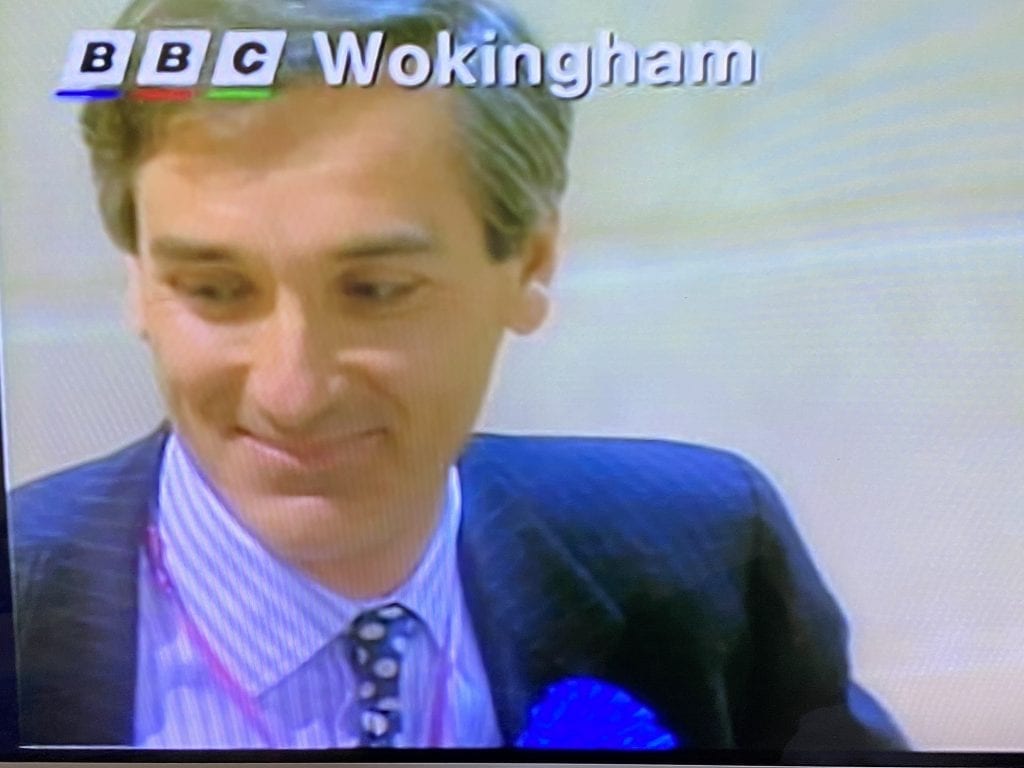
The Daily Mail highlighted some of his policies, including accommodating homeless people in hostels, diverting funds to popular schools so they could expand, freezing management costs so that more medical staff could be recruited and he also favoured the death penalty.
His manifesto pledges included keeping the pound instead of joining the euro, looking to save money in public expenditure, and strengthening the armed forces.
He also wrote: “On a recent visit to a housing estate where I was told that more than half the families were single parent families, I asked what action if any was being taken to involve the menfolk in the community rather more in helping bring up the children they had fathered. I was told, ‘there aren’t many fathers around here.’ In that community there was no presumption in favour of two adults creating a loving family background for their children. It is that which we have to change.
“We should remember that that state does not make the best parents and the extended family wherever possible should be encouraged to provide care and support to its members.”
And on leadership, he wrote: “If the team is doing badly, the captain has to do something about it. He has to lead, encourage, tell them how they can do it. The Tory team has been losing too many elections. We must change before it is too late.”
The leaflet also reminded MPs that he worked for Rothchilds and was chairman of Norcos PLC before entering the House of Commons. “He was a pioneer of the idea of privatisation on the seventies and head of Margaret Thatcher’s Policy Unit in the eighties”.
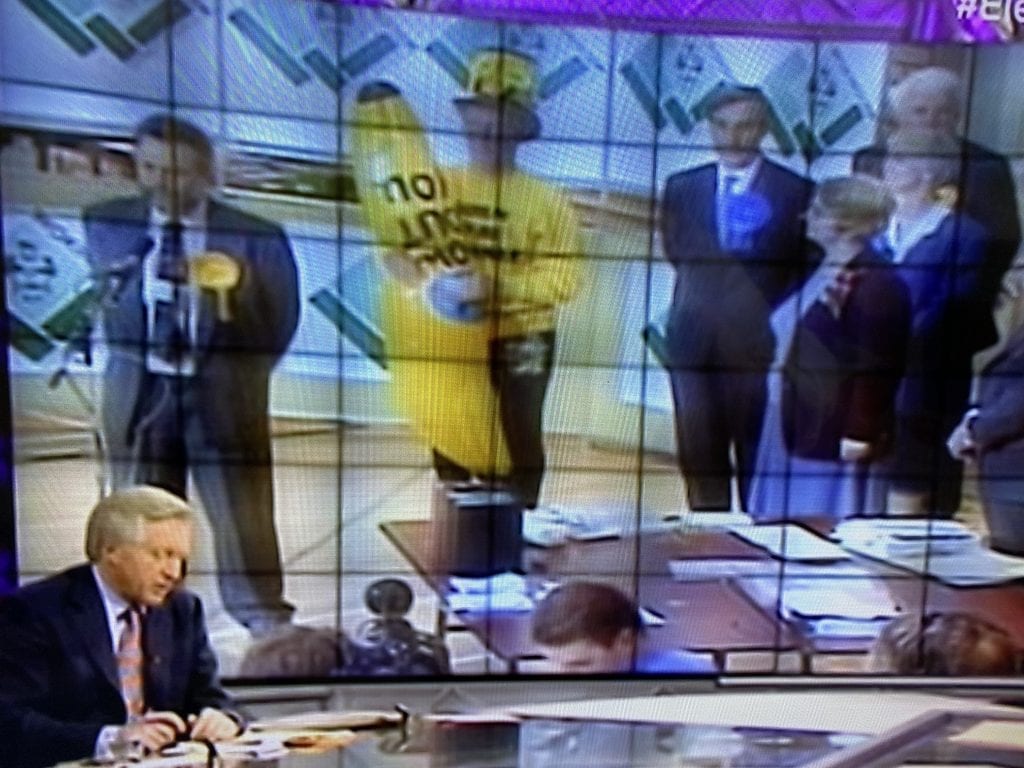
The election was held on Tuesday, July 4, 1995. Only Conservative MPs were allowed to vote.
John Major not only won, with 218 votes, but his 66% share of the vote meant that he won the contest outside. John Redwood received 89 votes – a 27% share. There were 10 abstentions and 12 spoilt papers.
In a 2018 interview, Major said: “I got 218 votes, and I had set a threshold: I had in my pocket an envelope, which had a number on it, and if I had fallen below that number, I would have resigned, even though I had won the vote… The number was 215.”
And after the election, he said said that Redwood was a “heavyweight candidate” but added that it was a “clear-cut decision” by MPs.
“The message that I would give to every Conservative, whether he is a Member of Parliament, a party member or someone who simply shares our philosophy and supports us in the country, is that the time for division is over,” he said.
“We have made our choice, it is a clear-cut choice I believe beyond any doubt whatsoever.”
At the first Prime Minister’s Questions after the leadership election, John Redwood spoke.
“May I congratulate my right honourable friend on his win?” he asked. “May I assure him that, like him, I wish to see a Conservative election victory? Would he agree with me that some of the ideas and policies that I set out in the past two weeks could make an important contribution to that victory?”
Responding, Major said: “I am grateful to my right honourable friend for his words. I hope that he will agree with me that we had a fair contest last week. I am grateful both for the way in which he has spoken this afternoon and for the way in which he conceded the result of the election.
“Let me say to my right honourable friend that there is a great deal that the Government will be doing in the months ahead which I know that he will wish to support enthusiastically. I will welcome his support, as will all my colleagues.”
The next question came from then leader of the opposition, Labour’s Tony Blair, who said: “I offer my congratulations to the Prime Minister on his re-election with, I suspect, rather more sincerity than the right honourable member for Wokingham, and, of course, I also congratulate him on his new deputy.”
Major replied: “I think that he congratulates me in the same spirit that Mr. Neil Kinnock did on one occasion. I am equally grateful and I look forward to the same result at the subsequent general election.”
John Major remained leader of the Conservatives until after the 1997 general election, where the Conservatives suffered their biggest defeat since 1906, losing 171 seats and 11% of their vote compared to the 1992 general election.
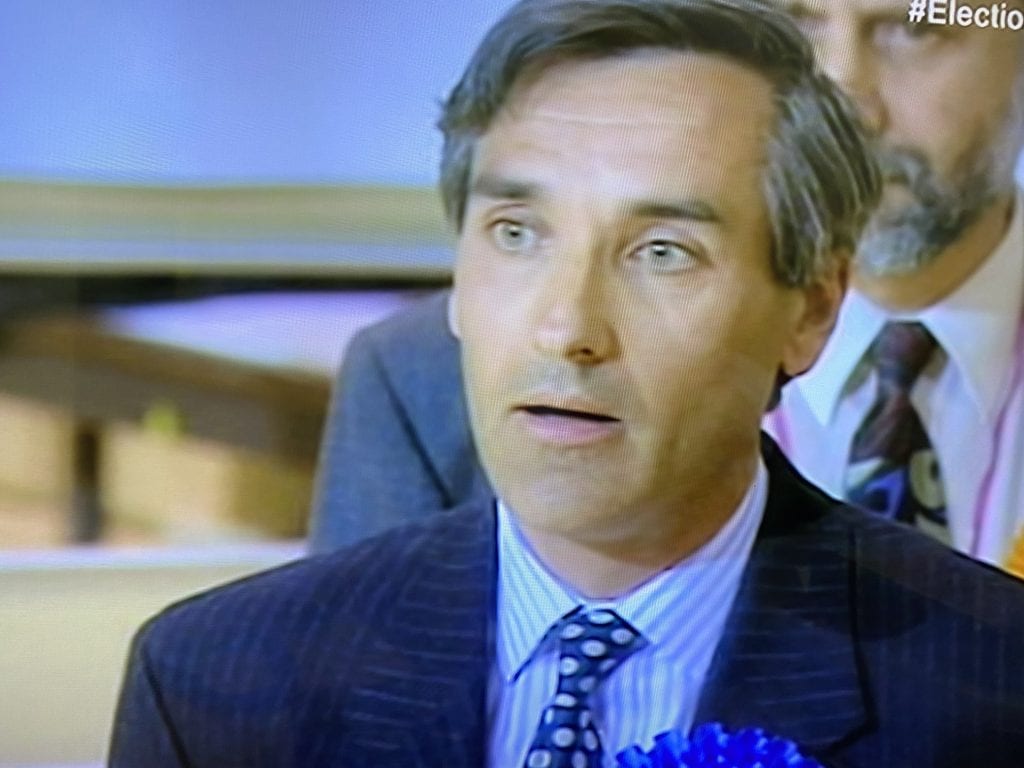
Many big names in the Conservative party lost their seats including Michael Portillo, Neil Hamilton and David Mellor.
Redwood polled 25,086 votes in this election, down from 43,497 in 1992.
He went on to stand in the 1997 Conservative party leadership election, making it to the third round before backing Kenneth Clarke against the eventual winner William Hague.
And as for those other stories making the news 25 years ago?
Liverpool legend Kenny Dalglish was to become director of football at Blackburn, theatres worried that the National Lottery would stop people from going to see shows and the FBI wanted to question the Duke of Manchester, who once wrestled crocodiles for a living, over a £30,000 fraud charge.


